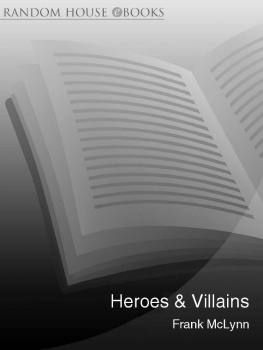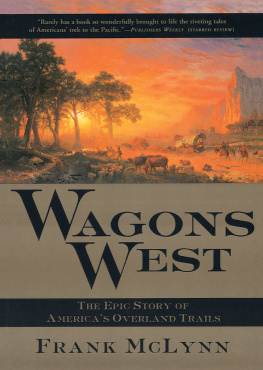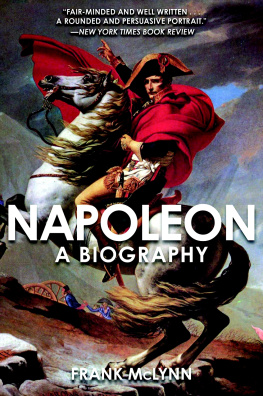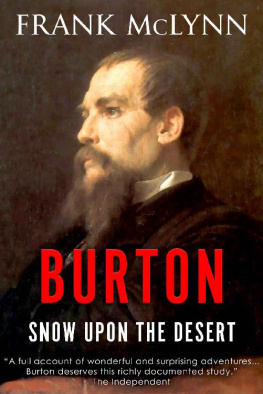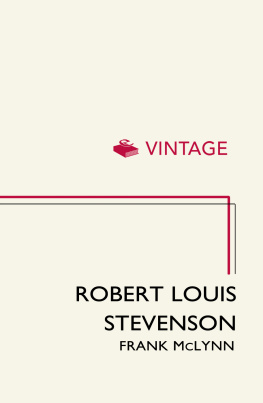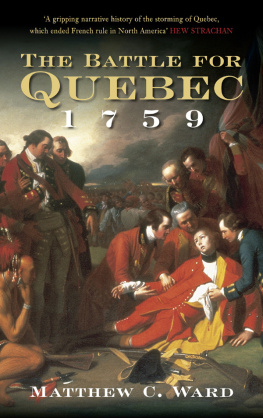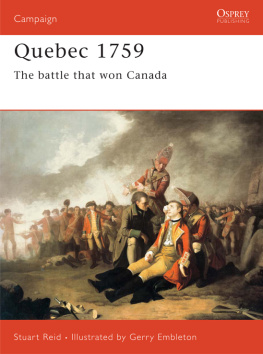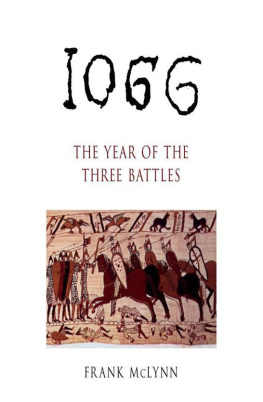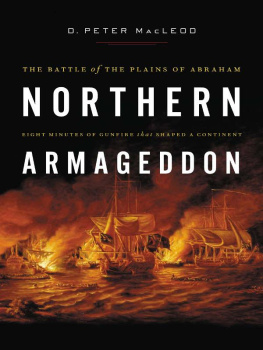1759
BY THE SAME AUTHOR
France and the Jacobite Rising of 1745
The Jacobite Army in England
The Jacobites
Invasion: From the Armada to Hitler
Charles Edward Stuart
Crime and Punishment in Eighteenth-Century England
Stanley: The Making of an African Explorer
Snow Upon the Desert: The Life of Sir Richard Burton
From the Sierras to the Pampas: Richard Burtons Travels in the Americas, 186069
Stanley: Sorcerers Apprentice
Hearts of Darkness: The European Exploration of Africa
Fitzroy Maclean
Robert Louis Stevenson
C.G. Jung
Napoleon
1066: The Year of the Three Battles
Villa and Zapata
Wagons West: The Epic Story of Americas Overland Trails
1759
THE YEAR BRITAIN BECAME MASTER OF THE WORLD
Frank McLynn

Copyright 2004 by Frank McLynn
All rights reserved. No part of this book may be reproduced in any form or by any electronic or mechanical means, or the facilitation thereof, including information storage and retrieval systems, without permission in writing from the publisher, except by a reviewer, who may quote brief passages in a review. Any members of educational institutions wishing to photocopy part or all of the work for classroom use, or publishers who would like to obtain permission to include the work in an anthology, should send their inquiries to Grove/Atlantic, Inc., 841 Broadway, New York, NY 10003.
First published in Great Britain in 2004 by
Jonathan Cape, Random House, London
Printed by special arrangement with Jonathan Cape
Printed in the United States of America
FIRST GROVE PRESS EDITION
Library of Congress Cataloging-in-Publication Data
McLynn, Frank.
1759: the year Britain became master of the world / Frank McLynn.
p. cm.
Originally published: London : Jonathan Cape, 2004.
Includes bibliographical references and index.
eBook ISBN-13: 978-0-8021-9915-7
1. Great BritainHistoryGeorge II, 17271760. 2.
Great BritainHistory, Military18th century. 3. Great
BritainColoniesHistory18th century. 4. Great
BritainForeign relations17271760. 5. Great
BritainForeign relationsFrance. 6. FranceForeign
relationsGreat Britain. I. Title.
DA500.M24 2005
941.072dc22 2004057397
Grove Press
an imprint of Grove/Atlantic, Inc.
841 Broadway
New York, NY 10003
For Pauline
With love
ACKNOWLEDGEMENTS
I feel privileged to have worked with a number of talented people on this book. Tony Whittome was an editor nonpareil, meticulous but never pedantic. Will Sulkin remains an authors dream publisher, in so many ways the last of the literary Mohicans. Paul Taylor drew the maps with his customary skill and panache. Among the other individuals who sustained, encouraged or otherwise aided me while writing this volume I must single out Lucy McLynn, Colette Bowe and Mike Bowe for special mention. Yet the palm must go, as ever, to my wife Pauline, the finest executive producer any writer of serious books could ever hope for. I hope I have produced a narrative that matches their dedication and commitment.
Frank McLynn
CONTENTS
TIMELINE
12 December 175816 February 1759: | French besiege Madras |
20 December 1758: | Bougainville arrives at Versailles on mission for Montcalm |
13 January 1759: | British fleet arrives at Martinique for intended conquest of the island |
5 February: | Choiseul interviews Bonnie Prince Charlie in Paris |
13 April: | French defeat Prince Ferdinand of Brunswick at Bergen near Frankfurt |
1 May: | British complete conquest of Gaudeloupe |
13 May: | Bougainville arrives in Quebec |
4 June: | Wolfe leaves Louisbourg for the St Lawrence river |
27 June: | General Amherst takes Fort Ticonderoga |
23 July: | Frederick the Great fights the battle of Kay in Brandenburg, Poland |
25 July: | British capture Fort Niagara |
31 July: | French repulse Wolfe and the British at Montmorenci Gorge, Quebec |
1 August: | Ferdinand of Brunswick and the British under Lord Sackville defeat the French at Minden, West Germany |
12 August: | Frederick the Great defeated at Kunersdorf, East Prussia by the Austrians and Russians |
1819 August: | Admiral Boscawen destroys French Mediterranean fleet at Lagos, Portugal |
13 September: | Wolfe defeats Montcalm on the Plains of Abraham |
5 October: | Robert Rogers and his Rangers destroy the Abenaki village of St Francis (Quebec Province) |
20 November: | Admiral Hawke defeats the French Brest fleet at Quiberon, Britanny |
2021 November: | Frederick the Great fights battle of Maxden, near Dresden, Saxony |
Outstanding literary productions of 1759:
Candide by Voltaire
Rasselas by Samuel Johnson
The Theory of Moral Sentiments by Adam Smith
GlInnamorati by Carlo Goldoni
The Sublime and the Beautiful (2nd ed) by Edmund Burke
The Life and Opinions of Tristram Shandy (Part One) by Laurence Sterne
ILLUSTRATIONS
MAPS
PREFACE
The year 1759 should really be as well known in British history as 1066, for this was when the British finally achieved the global supremacy they would maintain for at least another hundred years. Most of the other, better-known school history dates pale into insignificance. The Magna Carta of 1215 changed nothing; Philip II of Spain launched other armadas after 1588; and 1688 ushered in what was a very precarious revolution for the first fifty years. The famous victories of Trafalgar in 1805 and Waterloo in 1815 are justly celebrated as outstanding feats of arms, but they changed little. Napoleon had already abandoned his invasion attempts by the time Trafalgar was fought and, even if Napoleon had won at Waterloo, he could not have prevailed ultimately against a coalition of Britain, Russia, Austria and Prussia. If we can trace the beginning of the British Empire to a single year, it must surely be 1759. The defeat of the French that year paved the way for the Raj in India and made the emergence of the United States possible.
The entire history of the world would have been different but for the events of 1759. If the French had prevailed in North America, there would have been no United States (at least in the form we know it), for it is inconceivable that France would ever have ceded any of its North American possessions and, without the Louisiana Purchase of 1803, even if we assume the thirteen British colonies had revolted successfully against their French overlords a questionable assumption they would have been hemmed in on the Atlantic seaboard, unable to expand westwards to the Pacific. If France had won in India, the global hegemony of the English language could never have happened. Some say that the worldwide struggle for supremacy had to complete another chapter, in the Napoleonic era, before it could be assured. But Napoleon never looked remotely like solving the problems of seapower that prevented him from invading the British Isles. He had no Jacobite fifth column to help him and, even if we posit the near-impossible a successful invasion of England the already independent United States would eventually have risen to world supremacy. To some extent this is a simple matter of chronology. Napoleons best chance for planting the French tricolour on the Tower of London came in 1805, but he had already sold the Louisiana Purchase (the vast territories on either side of the Mississippi River in what is now the south-central United States) to Thomas Jefferson.
Next page

